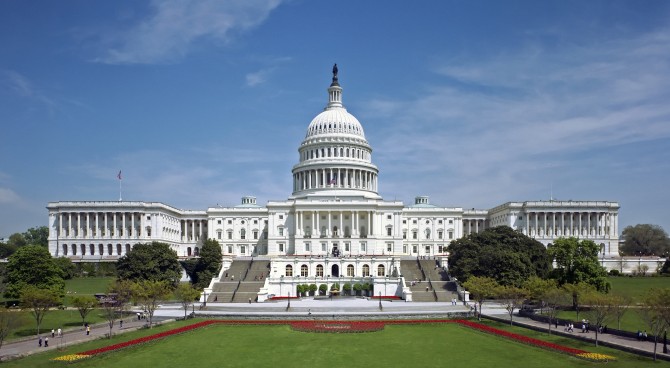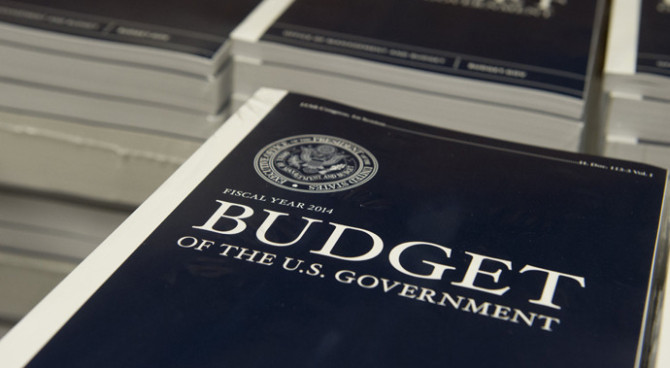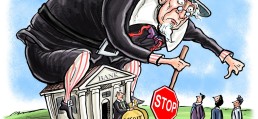Liberal lawmakers and activists want banks to lend to favored groups and deny the ‘undesirables.’
To resist President Trump’s campaign of economic reform and deregulation, his critics usually attempt to portray long-overdue, common-sense policies as assaults on the poor. A good example is the controversy regarding the Community Reinvestment Act, or CRA, which requires banks to meet the “credit needs” of their “entire community, including low- and moderate-income neighborhoods, consistent with the safe and sound operation of such institutions.” The media howled at a plan to rein in abuses of the law—despite its role in fueling the subprime crisis—setting off a fight among regulators.
Bank regulators started using the CRA in the mid-1990s to pressure banks to make subprime loans. Congress used quotas to force government-sponsored enterprises to buy these loans, and regulators set capital standards to induce banks to hold them. By 2008, roughly half of all outstanding U.S. mortgages were high-risk, as measured by down payments and creditworthiness. The federal government itself guaranteed, issued or held 76% of subprime loans. The term “subprime” originated from the implementation of the CRA.
To curb this abuse and encourage sounder lending, the comptroller of the currency proposed new benchmarks last month to measure CRA compliance and require full reporting and accountability. His reforms represent an essential step toward relieving the pressure banks face to lend to politically favored, uncreditworthy entities—the policies that helped cause the subprime crisis.
Yet after the proposal was tarred by the media as an attack on poor neighborhoods, a Federal Reserve Board member proposed an alternative that largely preserves the Obama CRA policy. Disputes among bank regulators are rare, and President Trump should help resolve this one by publicly supporting the comptroller’s reforms.
While policy makers fight over CRA abuses, another effort is under way to politicize credit. This time, instead of steering credit to the favored uncreditworthy, activists want to deny credit to the disfavored creditworthy. Banking was used as a weapon against legal, solvent businesses by the Obama administration during Operation Choke Point, a program to deny the disfavored access to banking services. The Federal Deposit Insurance Corp. labeled certain businesses “high risk,” including firearms and ammunition dealers, check-cashers, payday lenders and fireworks vendors. Unelected regulators, not Congress or courts, marked these industries as “dirty business” and made it “unacceptable for an insured depository institution” to offer them banking services.
The Trump administration ended Operation Choke Point. But some members of Congress have joined political activists in a new effort to block credit from going to legal, creditworthy enterprises through political intimidation. “There’s more than one way to skin a cat, and not everything has to be done through legislation explicitly” said Rep. Alexandria Ocasio-Cortez last year.
At a congressional hearing with the then-CEO of Wells Fargo, she demonstrated how this political skinning works by asking, “Why was the bank involved in the caging of children?” He responded that “for a period of time, we were involved in financing one of the firms” that built federal immigration detention centers, but “we’re not anymore.” Under political pressure, JPMorgan Chase and Bank of America joined this boycott of the detention-center company.
With Democrats unable to ban guns legislatively, Rep. Carolyn Maloney admonished banks at a recent hearing to not “finance gun slaughter.” When she urged JPMorgan to deny credit for legal firearm sales as other banks had done, the CEO responded, “We can certainly consider that. Yes.” At the same hearing, Rep. Rashida Tlaib challenged bank CEOs: “Will any of your banks make a commitment to phase out your investments in fossil fuels and dirty energy?” The CEOs declined to defend fossil fuels, even though they power 90% of U.S. transportation and provide two million jobs in energy extraction alone.
If these CEOs sound weak-kneed, it is important to understand that corporate leaders are entrusted with the stewardship of trillions of dollars, the life savings of millions of workers and retirees. Their congressional intimidators hold the power of subpoena and adverse publicity over their banks today, and could be one election away from having the power to take over their banks.
Democrats on the Senate Banking Committee have now joined the effort, calling on the nation’s largest banks to align their business strategies with the Paris climate agreement, from which the U.S. has withdrawn.
Letting political intimidation dictate the availability of private credit endangers freedom and stifles productivity growth and job creation. Had banks been intimidated out of making oil and gas loans a decade ago, fracking would have been impeded, America wouldn’t have achieved energy independence, and economic growth and wages would be lower. Americans would also be using less natural gas, burning more coal and generating higher carbon emissions.
Moreover, the practice of creating lists of political undesirables could be adopted on both sides of the aisle. How would today’s intimidators react if some future administration or Congress added abortion clinics, labor unions or disfavored media companies to a government hit list? Circumventing the legislative process to limit the freedom of some endangers the freedom of all.
In addition to supporting the comptroller’s reforms, Mr. Trump should use his executive authority to issue regulatory guidance to enforce the CRA by guaranteeing that legal, creditworthy borrowers not be denied banking services. The use of political intimidation to allocate capital is an assault on economic efficiency and freedom. The Constitution protects desirables and undesirables alike.
Mr. Gramm is a former chairman of the Senate Banking Committee. Mr. Solon is a partner of US Policy Metrics.



